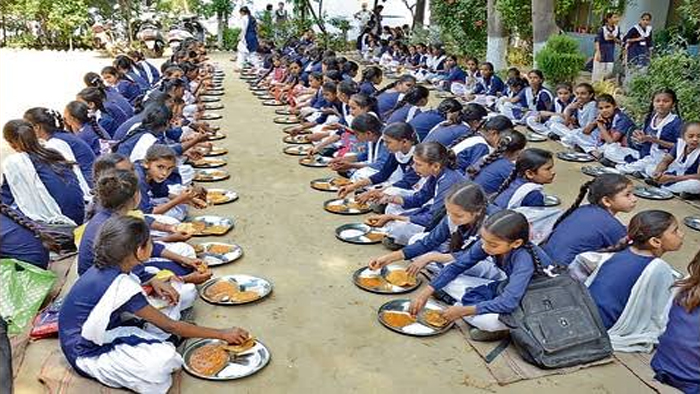Maharashtra’s Midday Meal Complications: An Overview Over Children's Nutrition

The decision to introduce eggs into the Maharashtra state’s midday meal scheme has sparked a political controversy. While the state government justifies the move as a nutritional enhancement for children, opposition parties view it as a politically motivated decision. This clash is not just about eggs but reveals the larger issue of political agendas and the challenges surrounding social welfare programs in the state.
The Shiv Sena-led government in Maharashtra has introduced the idea of providing eggs to children under the midday meal scheme to improve their nutritional intake. The scheme aims to provide eggs twice a week to children in schools, especially in rural areas, where malnutrition is a significant concern. However, this move has not been universally welcomed, with political opposition calling it an attempt to cater to a particular religious group, stirring debates across the state.
Opposition parties like the Bharatiya Janata Party (BJP) have criticized the proposal, arguing that the government is trying to polarize the issue for political gain. They suggest that the decision to include eggs may have religious undertones, as it could alienate some communities that do not consume eggs for cultural or religious reasons. Critics claim that such decisions are often used as a tool to divide the electorate and gain support from specific vote banks.
While the government insists that the decision is based purely on nutritional benefits, the timing of the announcement raises suspicions. With state elections on the horizon, opposition leaders have accused the government of using the midday meal issue to attract specific votes. The political angle of the decision has led to widespread debates on whether such welfare measures are truly aimed at addressing nutritional gaps or are more about securing political mileage.
Supporters of the initiative, including several child welfare organizations, argue that the introduction of eggs is an essential step in tackling malnutrition. Eggs are a cost-effective source of protein and essential nutrients for growing children. Given the nutritional deficiencies in many parts of Maharashtra, especially in rural areas, advocates claim that the scheme could provide significant health benefits, improving children’s overall well-being and academic performance.
However, the move has also faced strong resistance from certain religious and social groups, particularly those who oppose the consumption of eggs on moral or religious grounds. These groups argue that the government should explore alternative nutritional solutions that respect all communities. They suggest that the government’s approach is exclusionary and disregards the dietary preferences of a significant portion of the population.
The controversy surrounding the scheme highlights a larger issue in Maharashtra’s politics—the tension between catering to diverse communities and providing universal welfare benefits. With a multi-religious, multi-ethnic society, finding solutions that benefit all children without causing division is a difficult challenge. The midday meal scheme, intended to combat malnutrition and improve school attendance, has now become a political battleground where every decision is scrutinized for its potential impact on votes.
Critics also argue that instead of focusing on the addition of eggs, the government should prioritize other pressing issues like improving the quality of education, infrastructure, and healthcare, which are equally important for the well-being of children. By focusing on the egg debate, the real challenges facing the midday meal program might get sidelined, limiting the scheme’s true potential.
In conclusion, while the initiative to provide eggs as part of the midday meal scheme could bring nutritional benefits to many children in Maharashtra, its political implications cannot be ignored. The debate surrounding this move showcases the intersection of welfare programs and electoral politics. Ultimately, the challenge for the state government is to ensure that such decisions are made with genuine concern for children’s welfare rather than for political gain.